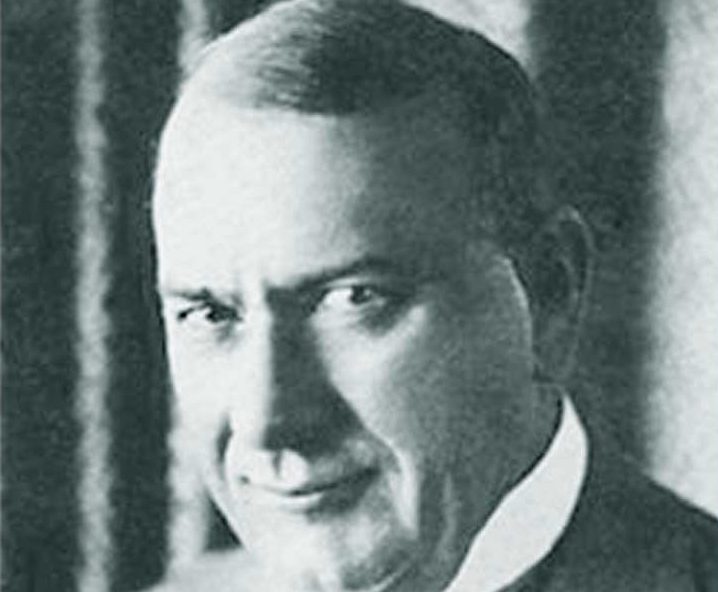Joseph Franklin ‘Judge’ Rutherford was the man who founded the Jehovah’s Witnesses as we know them today – the often-mocked, door-knocking evangelicals demonstrated in the video prelude to Rowland Nelken’s one-man show.
As a piece of little-known religious history, it’s enlightening: filled with millenarian fervour, and strong on biographical detail. Years appear in bold type on the screen to keep us on track, and echo the apocalyptic calculations Rutherford is unravelling for us. Biblical time is played out in the modern era, he says, so that X years after such-and-such occurrence something else will happen, mirroring bible prophecies. When the clock hits 1914, therefore, Rutherford genuinely does think the apocalypse is coming, because he’s done the math(s) and has the biblical quotation (projected for our education) to back it up.
We also sense, reading between the lines, a personal unravelling for Rutherford over the years – although this is more implied than explicit in the performance. Once a promising lawyer, by the end he’s crazed and paranoid, re-predicting apocalypses when they haven’t happened and convinced other forces are conspiring against him. He’s racist too, and sexist; in an anti-semitic frenzy he tries to ingratiate himself with Hitler, only to be swatted away.
There’s awkwardness in the telling of this tale though. The backdrop is PowerPoint slides, on which text and numbers don’t align from slide to slide. There are musical interludes too – Nelken singing hymn-like original numbers to a recorded electronic piano – which don’t really add much, but nor would they detract… if they worked seamlessly. Instead, almost every tune involves flicking forward and back, revealing slides before their time and waiting for music to kick in once the right slide is found.
A few gremlins might be expected, and afterwards Nelken cleverly attributes them to the work of Satan. But this points to something more fundamental about the way the work is presented. It’s disruptive to this particular performance, for sure, but Nelken’s personification of Rutherford would always be undone by having to play the additional anachronistic role of PowerPoint presenter.
All the same, Rutherford makes for an interesting biographical subject and Nelken’s demeanour captures his God-fearing earnestness and austerity. There’s nary a smile from the stage!
